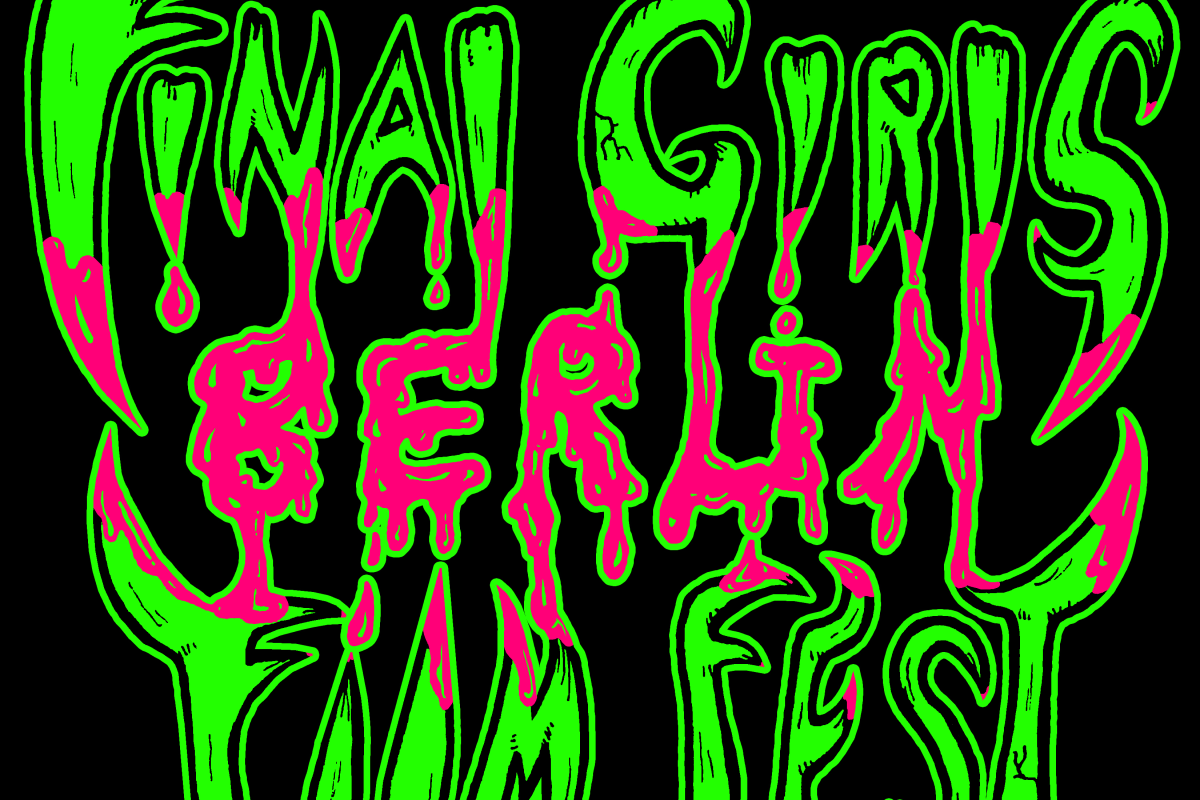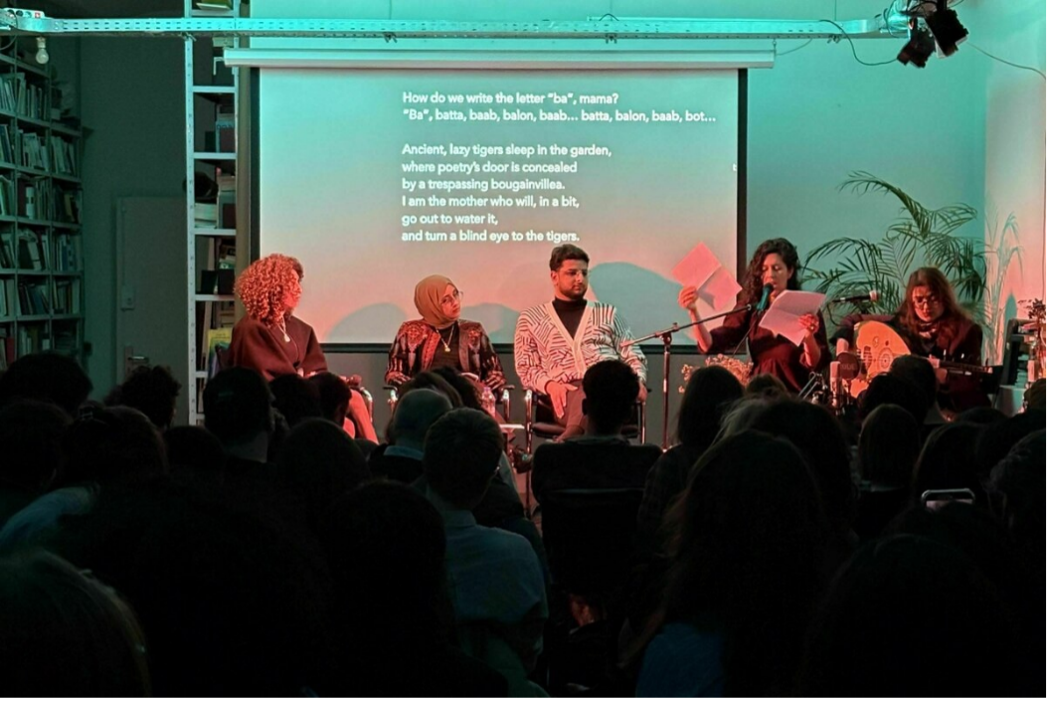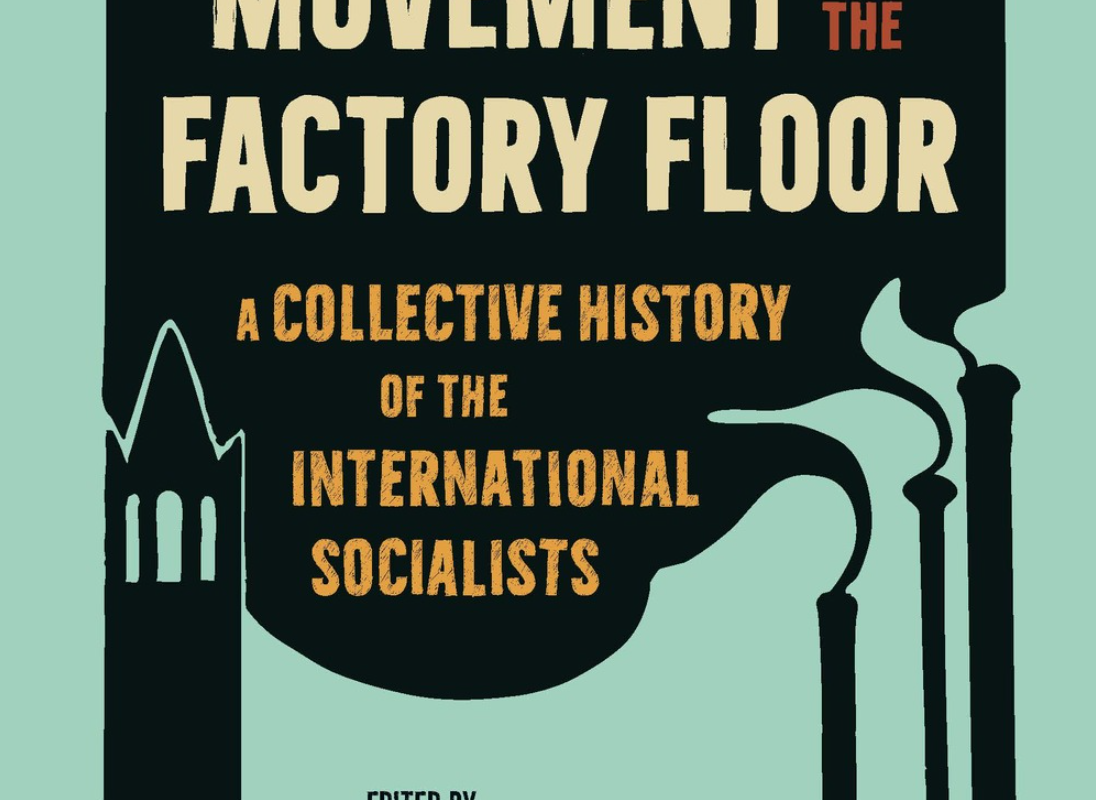It remains incredibly saddening and highly distressing to watch ongoing developments in the so-called ‘Breitz Afair,’ knowing that Saarland has done nothing to deserve the farce that is continuing to unfold around the cancellation of my exhibition late last year; a cancellation that was the result of poorly informed, hasty and damaging decision-making by individuals who really should have known better. Whether Andrea Jahn’s decision to step back from both of her official positions in Saarland—as director of the Saarlandmuseum and as chairperson of the Saarland Cultural Heritage Foundation (SSK)—was forced on her by Christine Streichert-Clivot, Saarland’s Minister of Culture and Education, or not — Jahn’s departure will do nothing to repair the significant harm that has been done to the reputation of Saarbrücken as a cultural city over recent months.
Streichert-Clivot will no doubt continue to be haunted by the legacy she has carved out for herself. She is likely to go down in history as the first Minister of Culture to preside over the cancellation of a major exhibition by a Jewish artist at a German museum since the Nazi era—without legal grounds or due process, and with utter disregard for the German Constitution. It seems to matter to the Minister very little — as she continues to systematically destroy her own credibility—that she is also dragging the city of Saarbrücken and its cultural institutions into a deeper and deeper state of disgrace and disrepute. In the very conspicuous absence of Andrea Jahn from public discourse over the last few months (Jahn has only given a single public interview in relation to the cancellation of the exhibition, in which she clumsily contradicted herself), Streichert-Clivot has prominently and enthusiastically lead the SSK’s baseless and slanderous attacks on my integrity and reputation. The Minister has zealously denounced me as a threat to Jewish life in a variety of public statements, as well as via two long interviews in the Saarbrücker Zeitung (on both of these occasions conveniently and cynically failing to acknowledge that I am Jewish myself).
How convenient it is for Andrea Jahn to now be able to walk away from the shameful fiasco that she ultimately chose to endorse, presumably with a financial settlement that will be generous enough to offer her an incentive to continue claiming that she “was always in support of the cancellation of the exhibition,” although there is extensive and conclusive evidence to suggest that Jahn neither made the decision to cancel the exhibition, nor supported it (until long after it had been announced). Information provided by Andrea Jahn confirms, that at the time that the SSK rushed their first sloppily written press release to the Saarbrücker Zeitung on 24 November 2023 (in order to publicly announce the cancellation of the exhibition), Jahn was not aware that the decision had been finalised (this had, it would appear, occurred without her involvement). If we take Andrea Jahn at her written word, the SSK’s initial press release was sent to the Saarbrücker Zeitung without her knowledge or approval. After a panicky meeting of the SSK on 22 November 2023, it took less than 48 hours for the foundation to cancel an exhibition that had been in preparation for over three years. I was not given the chance to state my case or defend my position in advance of the cancellation. The decision was made on the basis of a highly defamatory article in the press (which the relevant newspaper was later forced to revise by court order, after being challenged legally). Although the SSK has never been able to produce evidence of the “BDS letter” that I am alleged to have signed (this is one of several charges that were levelled against me), Streichert-Clivot continues to insist—in a manner that can only be described as increasingly unhinged and Kafkaesque—that I will remain a persona non grata until I have withdrawn my signature from this imaginary letter. You cannot make it up
As Jahn moves on from Saarbrücken, departing what can best be described as a political and cultural debacle, she leaves behind a museum that will need to slowly rebuild its reputation as a serious cultural institution. She also takes leave from a cultural community that has no good reason to believe that its Minister of Culture and Education can be trusted to defend freedom of expression or freedom of political opinion, basic civil rights that are enshrined in the German Constitution. Such rights — which Streichert-Clivot appears to hold in shockingly low regard—are essential when it comes to nurturing culture and education in healthy democratic societies. When these rights are curtailed or repressed, meaningful debate and discourse cannot flourish. The Minister of Culture—as we have seen over recent months—is not particularly fond of debate and discourse. She is most comfortable when those who do not agree with her can be bullied into silence and/or submission, making it possible for her to push through her own dogmatic opinions without having to accommodate the opinions of others or answer inconvenient or challenging questions:
Jahn has confirmed (in writing) that Streichert-Clivot prohibited her from giving interviews in the days following the cancellation of my exhibition and sought to exert control over her public communications. She has described Streichert-Clivot (again, in writing) as having been driven by fear as she rushed to frame a Jewish artist— whose opinions are neither violent, nor contrary to German law or the German Constitution—as an enemy of Israel. Although Jahn very much “wanted to be heard” and “to express her point of view,” she claims that Streichert-Clivot was reluctant to allow such possibilities. Realising that there was no other way to save her job, Jahn eventually resigned herself—in her single televised interview—to obediently performing a mantra-like script that sounded suspiciously like it had been written by her superior, Streichert-Clivot.
Shortly before abandoning her efforts to reverse the cancellation of my exhibition on 28 November 2023, Jahn sent me a final frustrated message, in which she declared that “her opinion had been pushed aside,” that “she was not in charge,” and that she unfortunately “had no power whatsoever.” Streichert-Clivot—whose official mandate it is to encourage and nurture healthy democratic discourse (as a Minister of Culture and Education)—has since systematically stifled every attempt made by the cultural community of Saarbrücken to invite me into public dialogue in relation to the cancellation of my exhibition and/or the work that I was supposed to exhibit at the Saarlandmuseum (work which has absolutely nothing to do with Israel-Palestine or Jewishness). The Minister of Culture is clearly scared to be in dialogue with me, although I have no political power or authority, and although I do not bite. I would, in fact, be perfectly willing to participate in a civil debate with either Streichert-Clivot or Jahn (if, that is, Jahn were to be granted permission to speak in public). Most recently, Streichert-Clivot has ignored an invitation from Die Zeit — a prominent national newspaper — to be in public dialogue with me. One can literally smell her fear all the way from Berlin. This is a Minister of Culture who is absolutely terrified of being confronted by curators and artists. She understands that taking either seriously would mean having to listen to and accommodate views other than her own.
My sincere gratitude goes out to Saarland’s cultural community, which has extended intense solidarity to me for months on end, vocally opposing the cancellation of my exhibition via an endless stream of supportive messages, and via no less than three publicly circulated open letters. Saarland’s cultural community deserves a Minister of Culture who cares about democratic exchange and freedom of expression. Instead, the community must continue to endure a Minister of Culture who has bought shame and disgrace to Saarbrücken and who has made the Saarlandmuseum a subject of intense criticism and derision across the German press landscape, as well as in the pages of over a hundred international newspapers—including the New York Times, Le Monde, The Washington Post and The Guardian.
What artist with a serious international reputation would want to exhibit at the Saarlandmuseum in the future, knowing that Streichert-Clivot will be ready to pounce and denounce, should their opinions fail to align with her own worldview? What artist could comfortably enter into collaboration with the Saarlandmuseum knowing that the institution expected this artist to work on an exhibition in good faith for three years without a contract, despite repeated requests (on at least five occasions) that a formal agreement be put in place? The invoice that my studio sent to the Saarlandmuseum on 19 December 2023—when I was still naïvely assuming that the museum might want to acknowledge and honour the three years of labour that I had invested in the exhibition (particularly since there had been no legal grounds for the cancellation)—remains completely ignored as of today’s date. This is an institution that—although it had already publicly promoted my exhibition (both on its website and in the press) and although all final decisions for the exhibition had already been made (via a series of meetings and approximately 200 e-mails) — has chosen instead to repeatedly attack my reputation over months, and to send me away with zero financial compensation. Apparently, the Minister of Culture does not see any value whatsoever in artistic labour. Given the public availability of this knowledge, what self-respecting artist would invest trust in the Saarlandmuseum? What curator or museum director would want to work under Streichert-Clivot, having observed the minister’s cynical perfection of the art of political and ideological interference in the cultural programming of Saarland’s flagship cultural institution?
Does anybody other than Streichert-Clivot honestly believe that the Minister’s tawdry defamatory campaign against me over the last few months, has been effective in making Jewish lives safer? Does anybody wonder how it is that the Minister was able to so accurately and speedily detect my virulent antisemitism, given that I have been warmly embedded and respected within Jewish community for over fifty years? For some reason, the Jewish people who I’ve lived and worked amongst over the last half a century have been too naïve to realise just how grotesque a Jew-hater I am. They clearly lack Streichert-Clivot’s fine feeling and expertise when it comes to such matters. What could they have been thinking—the Jewish Museum in New York, the Jewish Museum in Berlin, the Contemporary Jewish Museum in San Francisco and the Centre for Contemporary Art in Tel Aviv—when they invited this monster to exhibit her work prominently within their walls? The two Jewish-owned galleries who have represented my work over the last decade, are also clearly clueless when it comes to detecting dangerous Jew-haters such as myself. Both galleries ignorantly insist on continuing to represent my work, even after Streichert-Clivot’s denunciatory campaign. Just a couple of days before the SSK decided to de-platform and de-fund me (due to my allegedly antisemitic ways), I was standing on a podium in Oslo, delivering the keynote lecture at a symposium titled ‘Exploring Art and Perpetrator Memory.’ The symposium was focused on how we remember the Holocaust. It was put together by three Holocaust memorial centres, each located on the site of a former concentration camp (the Herinneringscentrum Kamp Westerbork in the Netherlands, the Gedenkstätte Bergen-Belsen in Germany and the Falstad Centre in Norway). But what would such institutions and experts know about antisemitism? Until Streichert-Clivot came along, thousands of unsuspecting and inattentive Jews, Israelis and Holocaust experts had somehow managed to overlook the ominous threat that I represent.
Is there anybody in the good city of Saarbrücken who truly believes that deplatforming and de-funding progressive Jewish individuals who happen to be critical of Netanyahu’s far right government, is the most meaningful and effective way to go about combatting escalating threats to Jewish life in the country that was responsible for murdering six million European Jews in the recent historical past? Should inhabitants of a democracy like Germany be entitled to criticize a far-right government that includes politicians who openly espouse genocidal rhetoric and proudly describe themselves as fascist, homophobic and racist; or should we just do away with freedom of opinion and let the German state tell us all exactly what to think?
Soon after the very public cancellation of my exhibition at the Saarlandmuseum, I was contacted by several other German museums that wanted to let me know that they viewed the cancellation of the exhibition as a shameful mistake. One by one, they confirmed that they would be continuing to display and support my work. These institutions included the Neue Nationalgalerie in Berlin, Fotografiska Berlin (a private museum financed by a Jewish-German collector), the Haus-am-Lützowplatz in Berlin, the Zeppelin University in Friedrichshafen and the Felix-Nussbaum-Haus in Osnabrück (a museum built by the Jewish architect Daniel Libeskind in memory of a Jewish artist who was murdered in Auschwitz). Strangely, none of these institutions felt the need to deny me a platform for my artistic work or to erode my artistic income on the basis of my political views, despite their awareness of Streichert-Clivot’s public and vicious attempts to undermine me as an artist and a human being.
Meanwhile, on my last visit to Saarbrücken in late 2022, the Saarlandmuseum was still proudly flaunting paintings by Emil Nolde, without commenting on the fact that the artist is known to have been a member of the Nazi Party who went out of his way to ingratiate himself to Hitler’s genocidal regime. The museum also continues to unquestioningly promote work by Jonathan Meese, a German artist who is notorious for wearing Nazi insignia and performing the Hitler salute. It would appear that antisemitic sentiments and symbols are kosher and acceptable at the Saarlandmuseum, so long as these are channelled by non-Jewish German artists. Jewish artists, on the other hand, must be heavily censured and side-lined for daring to hold political views that contradict those of Saarland’s self-righteous and opportunistic Minister of Culture, a self-appointed expert in keeping Saarland’s cultural institutions safe from progressive Jewish thinkers who dare to see the world other than she does.
The provinciality and ignorance of Minister Streichert-Clivot can best be described as a regrettable burden to Saarland’s excellent institutions and an insult to Saarland’s vibrant and tolerant cultural communities. We can only collectively hope that Saarland’s next Minister of Culture will be somebody who is actually interested in creating space for cultural engagement and open dialogue, rather than another pettyminded bureaucrat who specialises in expelling artists from museums and shutting down democratic discourse.
This article first appeared in German in the Saarbrücker Zeitung on 18th March 2024. Reproduced with permission




